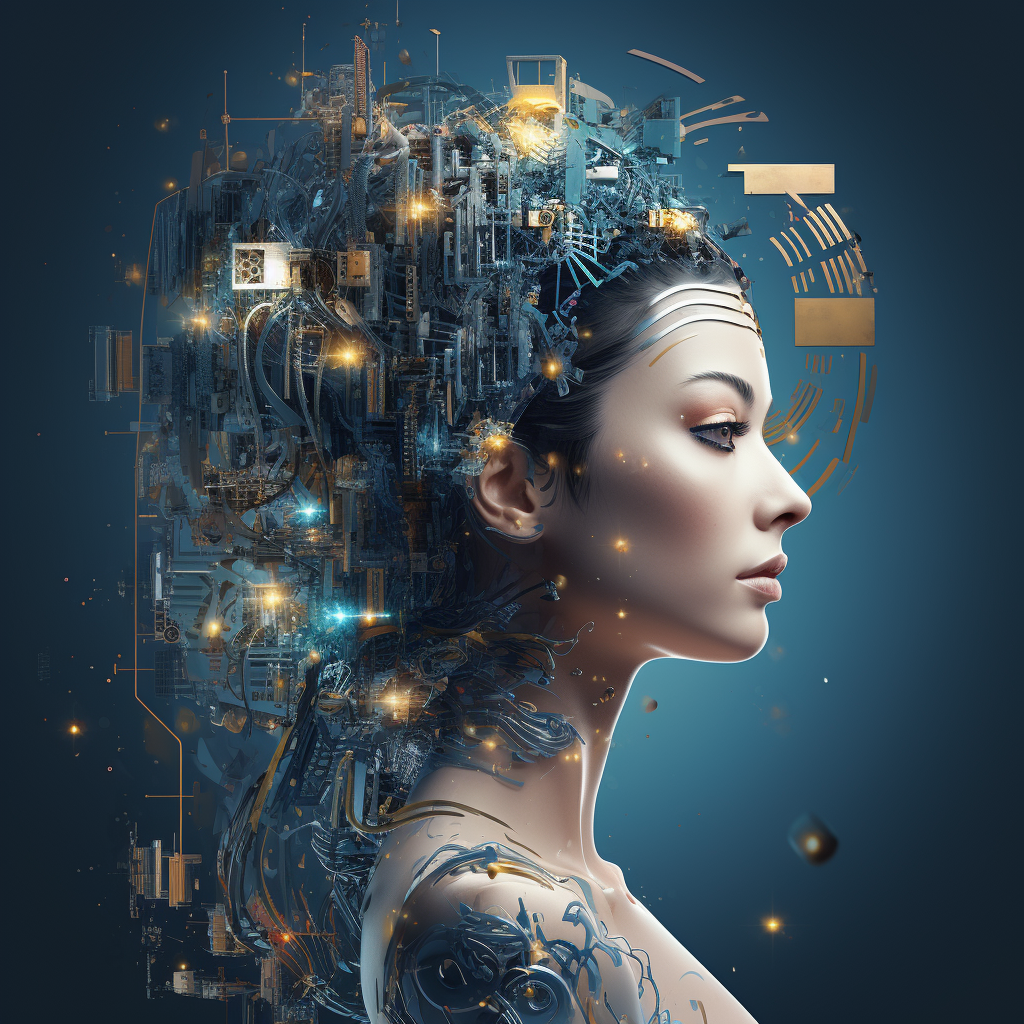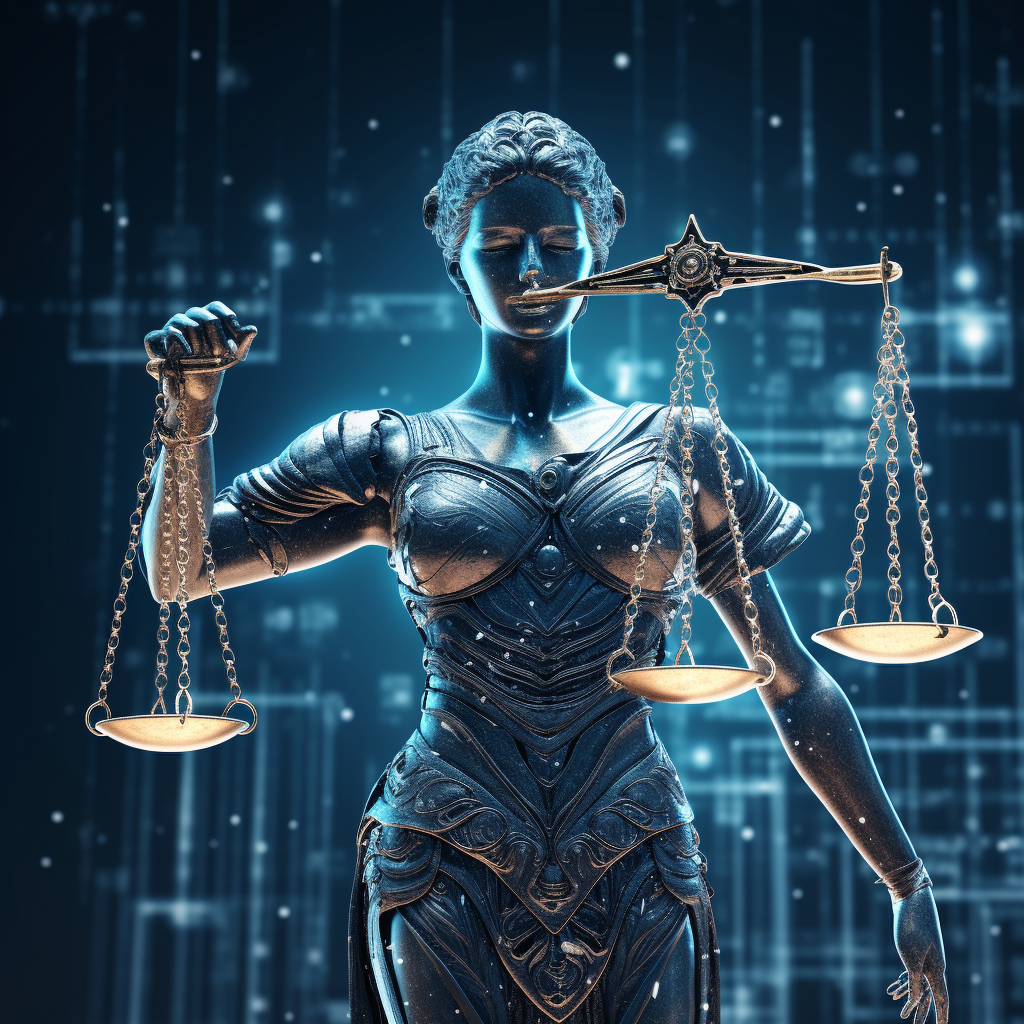Legal professions have long been associated with hours of meticulous case preparation, intricate research and complex document analysis. The rise of Artificial Intelligence is changing the law and raising questions about lawyers' future roles. Can AI replace lawyers or is it a way to enhance their capabilities?
This article will explore the fascinating world of AI and law, exploring how it can assist lawyers, as well as whether the complete replacement or legal professionals is possible.

The AI Transformation in the Legal World
Artificial Intelligence (AI) is a term that refers to a wide range of technologies which simulate human intelligence. These include machine learning, natural-language processing, and data analysis. These technologies have been adopted by many sectors, such as healthcare, finance and transportation. The legal field is not an exception.
1. Legal Research and Analysis
AI has made a significant contribution to the legal profession in the areas of legal research and analyses. Lawyers used to spend countless hours searching through legal documents, case laws, and statutes in order to build their cases. AI-powered tools such as IBM Watson, ROSS and LexisNexis can process and analyse massive amounts of information in seconds. They can give lawyers instant access to relevant statutes, precedents, and case law. This reduces research time and human errors.
2. Document Review and Due Diligence
AI-powered systems are also invaluable for document review and due diligence. These are important aspects of legal practice in particular in mergers and purchases. These systems, which use machine learning algorithms, can quickly identify and flag potential problems in contracts and legal documentation, ensuring an efficient and thorough review process. This not only reduces the risk that critical details are missed, but also saves time.
3. Predictive Analysis
AI can help lawyers predict the outcome of legal cases more accurately. AI systems can provide insights into the likelihood that a case will be successful by analyzing past data and relevant factors. This allows lawyers to make better decisions and strategize their cases.
4. Legal chatbots and virtual assistants
AI-driven chatbots for legal advice and virtual assistants are making legal information more accessible. These chatbots are able to answer common legal queries, guide people through legal processes and help them understand rights. They don't replace lawyers, but they do democratize the information available and make it more accessible to those who can't afford legal representation.
5. Contract Automation
AI has also made significant progress in the area of contract automation. AI-powered systems are able to generate contracts, review them and edit them. They can even suggest improvements on the basis of predefined criteria. This not only speeds contract creation, but also reduces the chances of errors and inconsistencies.
The Future of Lawyers In An AI-Driven World
AI has certainly transformed the legal profession. However, the question as to whether or not AI can replace lawyers completely is still a matter of debate. Let's examine some key considerations.
Legal judgment and expertise are critical to the practice of law. Lawyers do not only interpret law, but also apply it in specific situations. AI can help with legal research and predictive analytics but it cannot understand the nuanced human factors that are often crucial in legal cases. Human lawyers excel in areas such as complex decision-making, understanding the motivations and ethics of clients and adversaries, and ethical considerations.
Lawyers are often in close contact with their clients when they are dealing with emotionally charged situations. AI lacks empathy and emotional intelligence needed to handle these situations. Human lawyers are best suited to build trust, reassure clients, and understand their unique needs.
AI systems are based on algorithms, data and are only as good at the data that they are trained with. AI can raise issues of bias and fairness when it is used by the legal profession. It is a complex task to ensure that AI systems adheres to ethical and legal standards. This requires human oversight and regulations.
Legal professions are not only about interpreting laws, but also about adapting them to changing legal landscapes and social changes. Lawyers are crucial in influencing and shaping the development of law. While AI can help with legal research and analysis it is humans that drive innovation and adapt to new legal paradigms.
The Synergy between AI and Lawyers
AI will not replace lawyers but rather become a valuable tool to enhance their capabilities. The synergy of AI and lawyers could lead to more efficient processes, lower costs, and better access to legal services. Here are a few ways that this collaboration can benefit lawyers:
1. Enhance Efficiency
AI can handle routine tasks such as document review, legal research and other routine tasks with unmatched speed, accuracy and efficiency. This allows lawyers to concentrate on higher-level tasks requiring human judgment and expertise. This results in increased efficiency and reduced billing hours for clients.
2. Improved Accessibility to Legal Services
Chatbots and virtual assistants powered by AI can make legal advice and information more accessible to a wider segment of the population. This can help bridge justice gaps by providing affordable and convenient support to those in need.
3. Data-Driven Decision-Making
AI can give lawyers valuable insights and predictions that are based on data. This data-driven approach helps lawyers make better decisions and improve outcomes for clients by guiding their legal strategies.
4. Cost Reduction
AI can reduce the cost of legal service by automating repetitive tasks. This can make legal services more affordable and accessible for individuals and businesses.
Virtual AI assistants for enhanced client communication
In an age where seamless communication is essential, law firms increasingly turn to AI conversational bots as valuable tools to strengthen client relationships. These Virtual AI Assistants are provided by services such as "Hire-a-Robot" and are designed to facilitate meaningful interactions between law firms, their clients and other professionals.
AI chatbots can be accessed 24/7, so clients get instant responses to their questions, even if they are outside of normal business hours. This level of accessibility is essential for addressing urgent legal issues and enhancing customer satisfaction. The clients appreciate the convenience and timely support they receive, and the 24/7 accessibility of the law firm.
Virtual AI assistants are excellent at answering frequently asked questions, providing basic information on the services of a law firm, its practice areas, and its contact details. Clients can obtain important information quickly without human intervention. This saves both staff and clients time, while also ensuring consistency in the information provided.
AI chatbots are able to guide clients through the submission of documents and navigation of legal processes. This allows clients to make informed decisions about legal matters, and reduces the administrative load on law firm staff. AI chatbots allow law firms to provide a higher standard of service, reduce overhead and build stronger, longer-lasting client relationships.
AI virtual robot attorneys can be affordable for small businesses and individuals who do not have the resources to hire a full-time attorney. Users can get expert legal assistance by paying for specific tasks and projects, without the overhead costs associated with traditional legal hires.
Hiring a virtual assistant lawyer from Hire-A-Robot offers many benefits. The Robot Lawyer's expertise, efficiency, and accessibility makes them the perfect partner to navigate today's complex legal environment.
Hire a Virtual Legal Assistant now!


